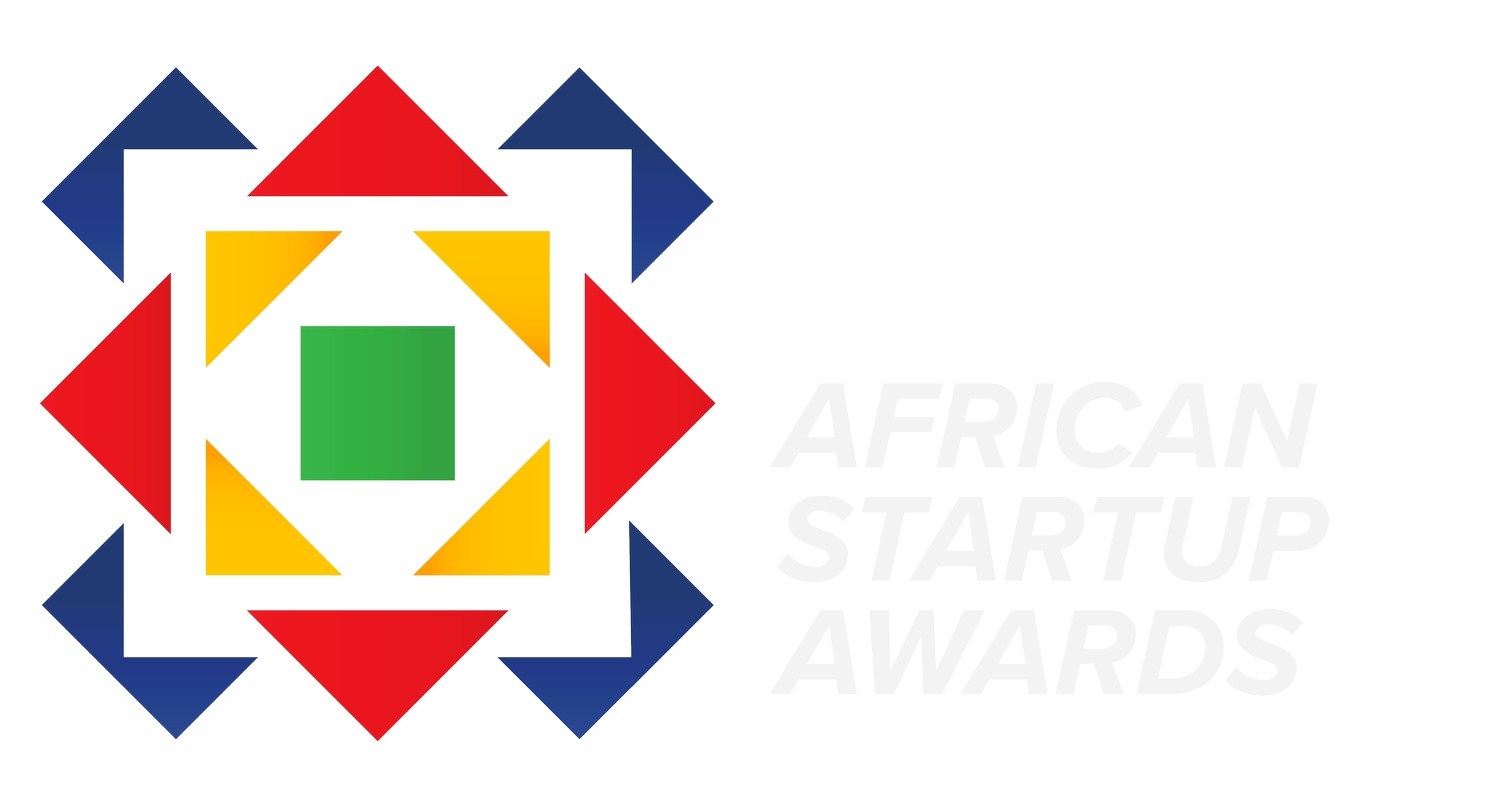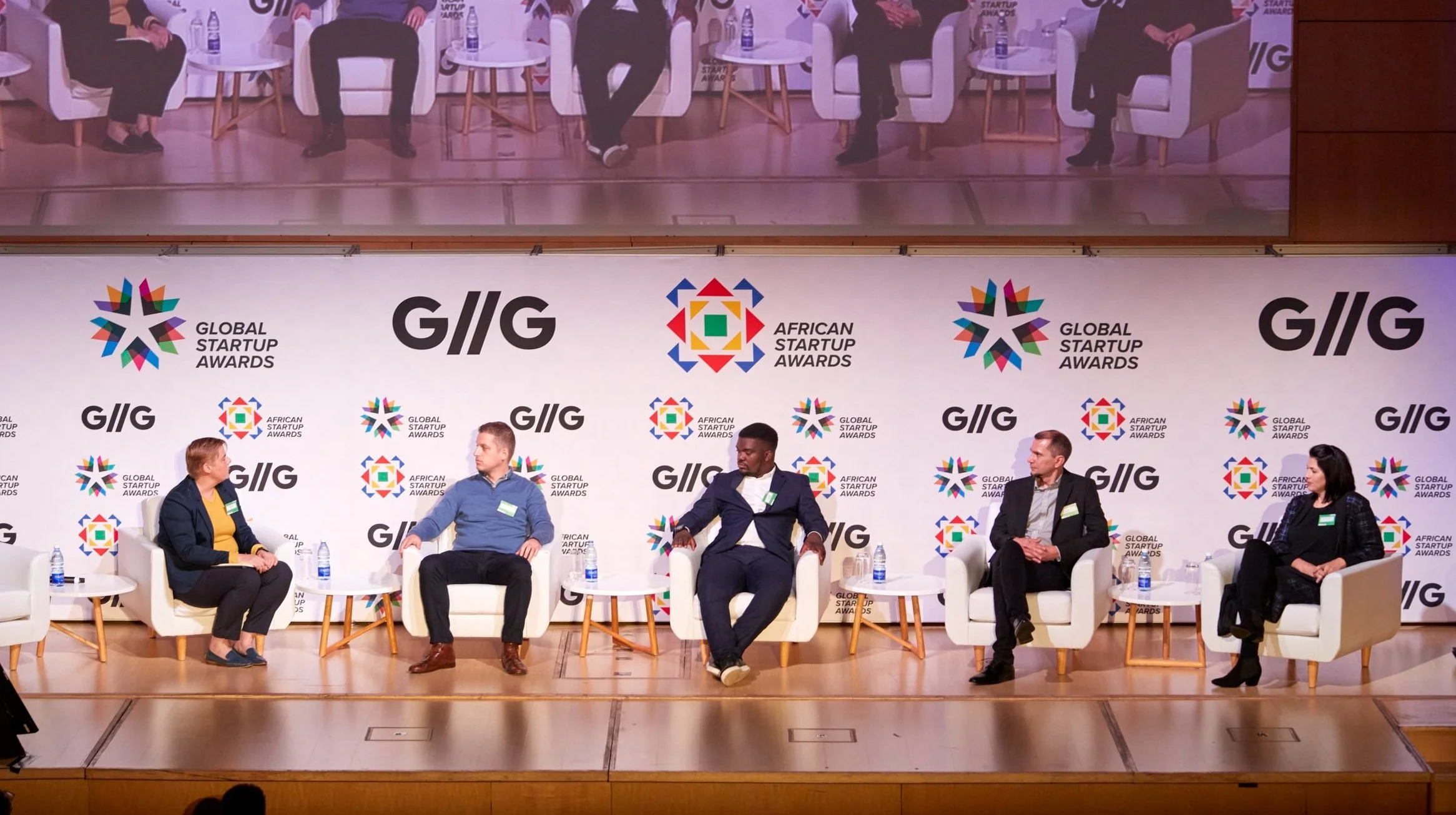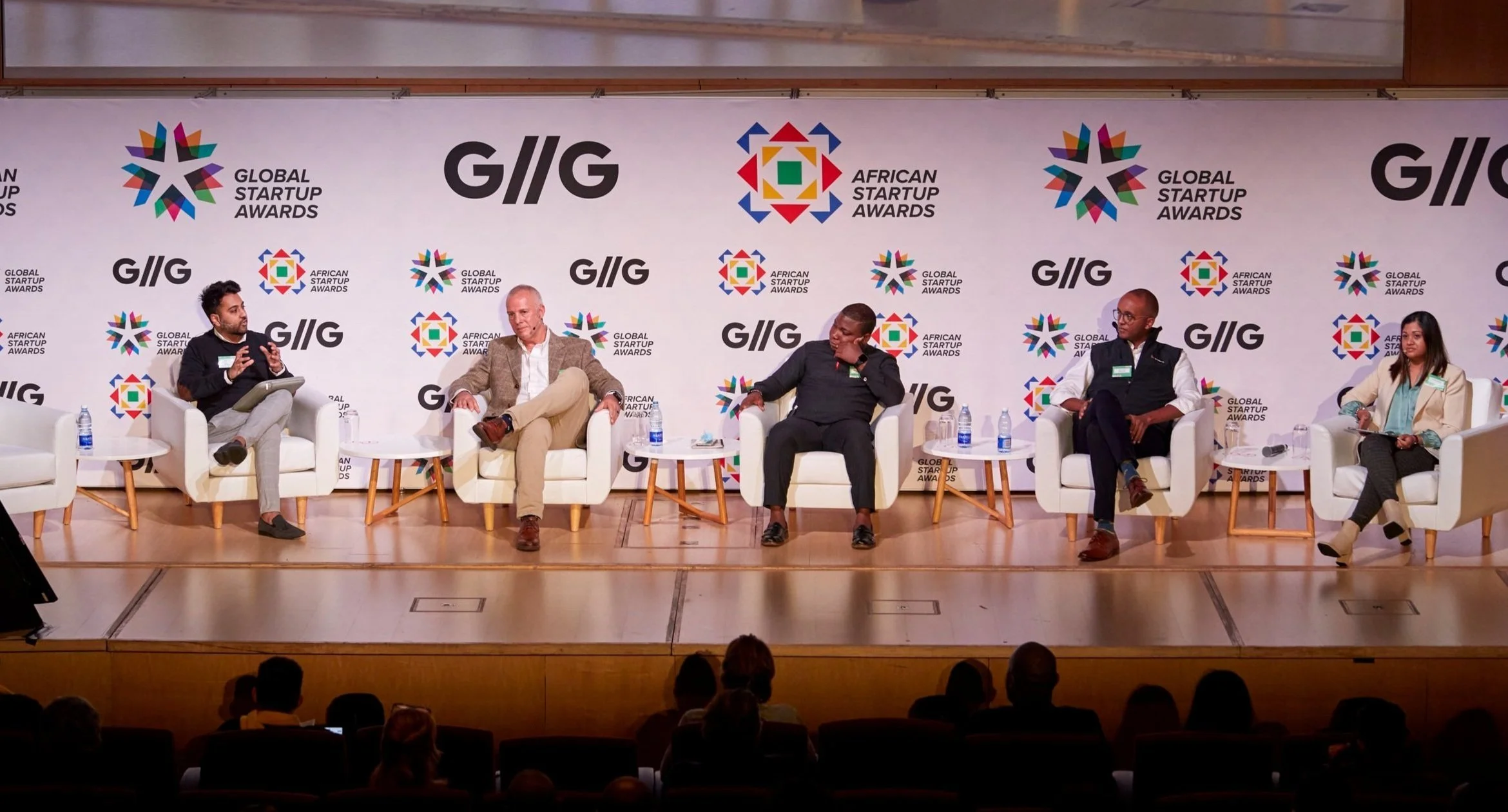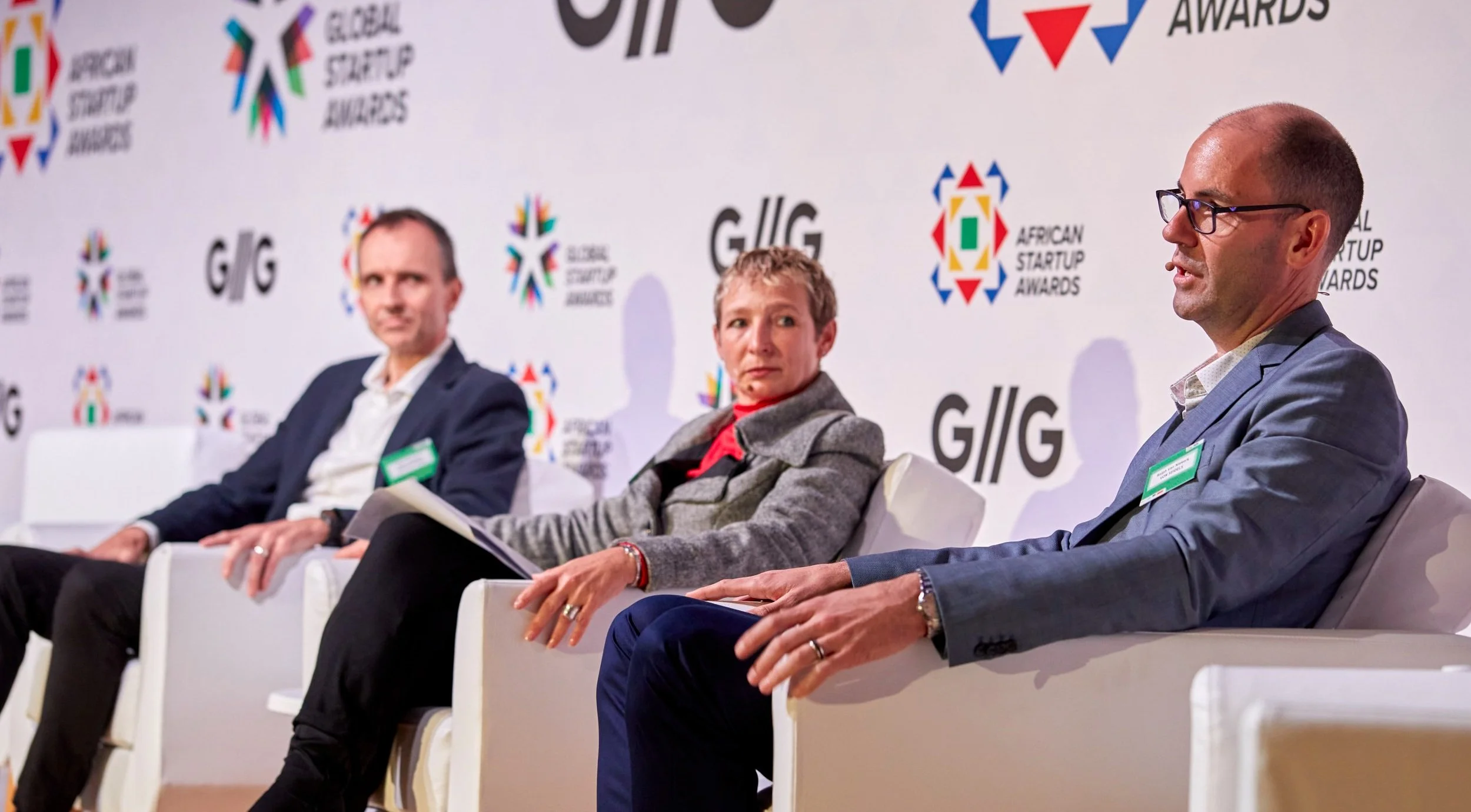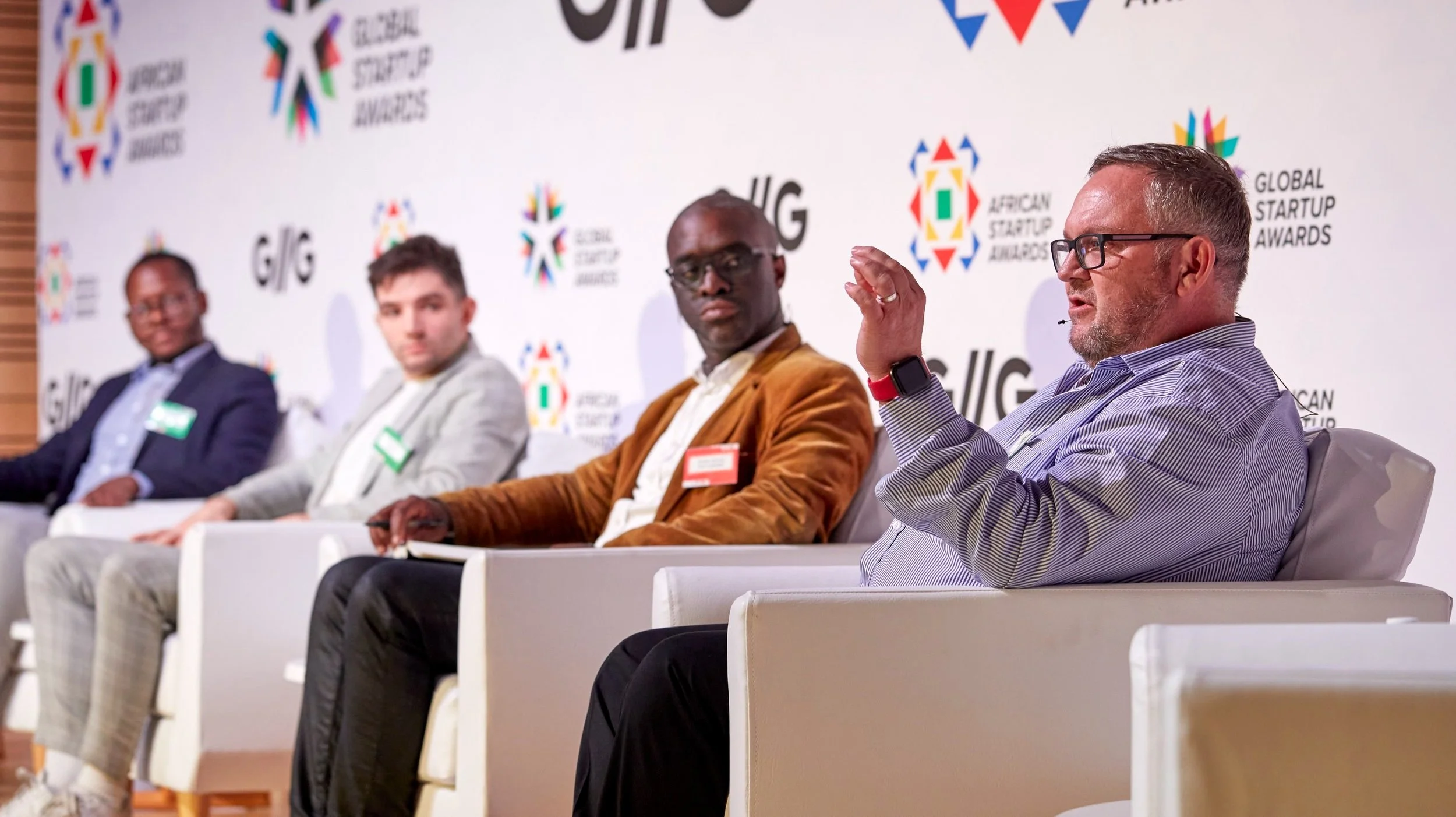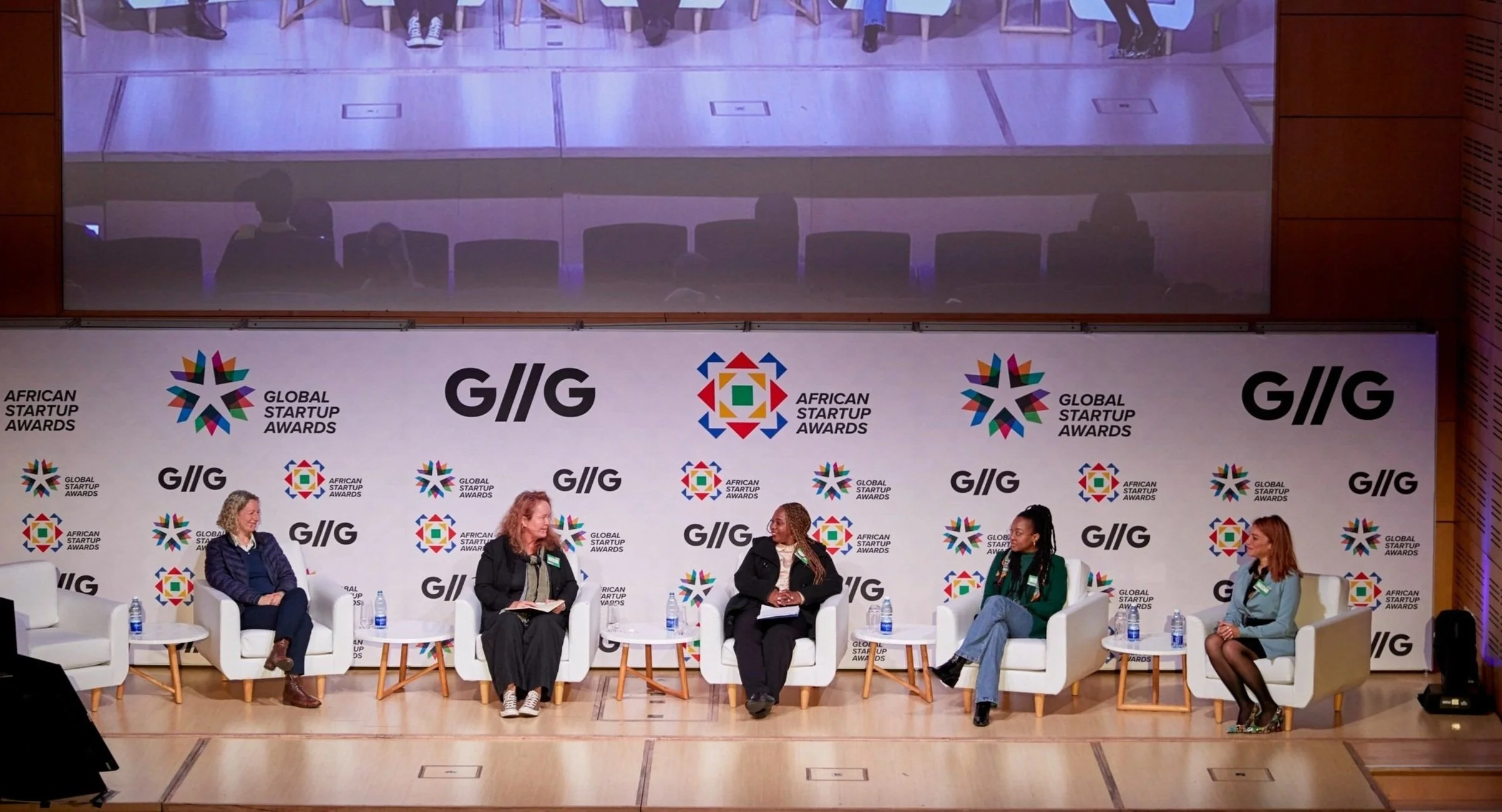
PANEL DISCUSSIONS
MEGATRENDS: AFRICA AS A TECH CONTINENT OF THE FUTURE - HEALTHCARE
Health Tech is one of the fastest-growing megatrends in Africa, as entrepreneurs are tirelessly innovating ideas that solve global challenges. Breakthroughs in advanced technologies, the proliferation of IoT and connected devices, and the exponential rise in user-generated data are powering the future of healthcare in Africa.
"While HealthTech may be the new darling of investments in the startup space, it also brings to the fore how problematic access to quality health care is in Africa" - Dr Sumarie Roodt, Co-chair of The Silicon Cape Initiative, Founder of the UCT Tech4Good Lab and Co-founder and CEO of NOOSi Health.
“Leading tech trends doesn’t always meet the local demand or supply - your timing with your clients, their budget, the trend awareness and the readiness of your market really needs to be aligned for your business to flourish“ - Mandi Swanepoel, Head of HealthTech Portfolio at Wesgro.
“Bringing technology to rural, remote areas is a challenge but one that African startups are really good at solving” - Andrei Migatchev, CTO at Envisionit Deep AI.
“The trend that we've noticed is that patients across the continent are looking at the various choices for where they can get the better medical treatment. The Internet has given patients access to a lot of information on where they should go for medical treatment and we're seeing a lot of patients moving across the continent for medical treatment” - Ryan Marinkowitz, CEO at My Health Africa.
A big shout out to the Wesgro Tourism, Trade, and Investment Unit for sponsoring this dialogue opportunity!
MEGATRENDS: AFRICA AS A TECH CONTINENT OF THE FUTURE - SUSTAINABILITY & CIRCULAR ECONOMY
Pressing issues of climate change, global warming, and growing scarcity of resources are spurring the need for new innovative approaches to make, consume and dispose of goods across the globe. In 1995, 2% of food waste was recycled in South Korea, today, that’s 95%. The country has created incentives, to reward people who recycle, to combat food waste. But businesses need to find a middle ground so they don’t have to be on either extreme.
“Private sectors and small businesses need to drive the message around innovation and sustainability. The real multi-national is the private sector. As the small businesses develop, they should mainstream the ideas from the private sectors to achieve the needs and the goals of Agenda 2030 and the SDGs. Sustainability comes from the principle of being purpose-driven” - Klariska Moodley, Head of Experimentation at the UNDP.
“There’s a view that ESG investors are in it for money, but there’s a big group of investors that look to fund businesses that align with ESG policies. This encourages corporates to be socially aware, and enables them to do the right thing” - Hermann Haupt, Vice President for Sub-Sahara Africa at CHEP.
“We are positioning ourselves to change the narrative around what we naturally see as waste. For us, we’ve used incentives as a form to transform plastic waste, into a source of income” - Boluwatife Arewa, Managing Partner of Scrapays Technologies Limited.
“When we created Kubik, we thought about solutions to create dignity, using something which is not of value, such as trash, for those that don’t have access to choice,” - Kidus Asfaw, Co-founder and CEO of Kubik.
A big shout out to CHEP for sponsoring this dialogue opportunity.
INTELLECTUAL PROPERTY IN AFRICA
Intellectual Property (IP) has become one of the most valuable commodities of the Information Age, making it an integral part of a thriving innovation ecosystem. But for African states looking to harness the potential of tech startups to fast-track development amid booming population growth, the development of a balanced and effective IP system is key.
“What’s important is that when you have intellectual property rights, you as the owner of that right is the only one that can license and provide the right for others to use it." - Ralph van Niekerk, Partner at Von Seidels.
“It’s never too early to think about Intellectual Property. From an industrial economy to a service economy to a knowledge economy - most of what we trade are intellectual products. So you have to start thinking about IP right from the beginning of your startup.” – Dr Sean Moolman, Co-Founder and Chief Operating Officer at PowerOptimal.
“IP creates value in startups and investors will value startups if they have given attention to this.” – Dr Moolman
“It’s better to have lawyers and professionals draft your contract as they understand what clauses to have in those agreements and want to protect your interests. There are many attorneys who want to serve SMEs and want to help them make it through their first few years of starting up” - Madelein Kleyn, Director for Technology Transfer at Stellenbosch University.
Thank you to Von Seidels for sponsoring this panel and to Innovus at Stellenbosch University, PowerOptimal and Stellenbosch Network for your partnership and support.
UNLOCKING AFRICA’S GROWTH & CASCADING OPPORTUNITIES THROUGH BLOCKCHAIN & DIGITAL ASSETS
Blockchain is a system of recording information in a way that makes it almost impossible to change, hack, or cheat the system. A blockchain is essentially a digital ledger of transactions that is duplicated and distributed across the entire network of computer systems on the blockchain.
Ian Putter, Head of the Blockchain Centre of Excellence at Standard Bank Group and Founder of the Blockchain Research Institute Africa: “We want to lower the barriers of entry through using decentralised technology”… “Blockchain is not only a technology, it is a decentralised economy.” “The strongest asset we have is that blockchain can leap-frog Africa”…“We need to make the things of the future relevant today.”
Adam Romyn Co-Founder and Chief Technology Officer at Momint - NFT Marketplace: "NFTs are showing people what smart contracts can really do – Especially in Africa"… "A big portion of NFT purchases have come from Africa, with South Africa and Nigeria being the powerhouses."
Wesley Diphoko, Editor in Chief at Fast Company South Africa: “We have to think about real issues in our countries, use cases, that can help us appreciate the value of blockchain technology.”
Anda Ngcaba, Chief of Operations at Algorand-UCT Financial Innovation Hub: "Blockchain education is important. We need people to come together to show the strength of what blockchain can do for the ecosystem"…"Blockchain has so much potential. The African continent needs blockchain as much as blockchain needs the African continent."
A big shout out to Blockchain Research Institute Africa, Fast Company South Africa, Momint - NFT Marketplace and Algorand-UCT Financial Innovation Hub for your participation!
GLOBAL MARKET ACCESS & PARTNERSHIPS
With globalisation and increased connectivity, entrepreneurs around the world are now building companies with a vision to scale globally. But while success may be achieved in the ‘home market’, entering new industries and territories is never as simple as it may sound.
Kagiso Koyabe, Technical Advisor for Acceleration, Botswana Digital & Innovation Hub: “As you go out into new markets, you must consider the name and phrases that go with your startup, and consider the environment that you are going into"… "Because of the different levels of development of SMEs from various African countries, there are large variations of how products are presented - from the branding and packaging to even the quality of packaging. We need to change how the world looks at African products."
Enrico Cupido, Director at Marathon Group and Ambassador at AfricaBerlin Network - Connecting Startups & Ecosystems: "I found it easier to connect with people from other parts of the world. People are more conducive to engaging and listening to what you're wanting to do. Africa is a continent people don't quite understand and so we must work together in an environment to understand that there are opportunities for organisations to invest in African startups. Therefore, creating partnerships is vital to access global markets"… "Know your worth and stand your ground. Never stop learning."
Péter Kovács, Co-founder of Global Startup Awards: “Self-confidence is fundamentally important to scaling your business – Entrepreneurs need to be brave enough to believe that they can expand their product/ service to the global market.”
Yugen Pillay, National Director of Business Consulting & Energy at SNG Grant Thornton: "There is a lack of self-confidence amongst startups, and so you need to value your self-worth, which inevitably will give you the knowledge and power to proclaim your space in the global market."
Thank you to our incredible speakers for your valuable insights and our Country Partners for your collaboration.
THE EVOLUTION OF CORPORATE INNOVATION & PARTNERSHIPS
Small businesses and entrepreneurs are the biggest contributors to job creation and the acceleration of Africa’s economy. However, for these entrepreneurial organisations to thrive, they need a collaborative support system from big corporates, government, investors and all key stakeholders.
“As corporates, the first thing we need to do is understand the status quo within our organisations. Corporates often build barriers based on misconceived notions of what the procurement/ product/ process should look like. Creating an inclusive environment starts with an institution understanding what barriers they are creating to access that market opportunity - particularly for small black-owned businesses” – Henry Mathys, Head of Social Impact & Food Ecosystem at V&A Waterfront.
“From an entrepreneur’s perspective, when approaching a corporate with an innovative idea, the apetite for innovation is receptive when a corporate can see the potential difference an innovative idea could make in their clients’ lives - How it would save costs, improve services or deliver on social/ corporate benefits. It is important that the entrepreneur articulates it very clearly in the kind of language the corporate wants to hear” – Charles Wyeth, Enterprise and Supplier Development Manager at Distell
“When we think about access to market and collaborating with corporate partners, it really is about the link and how you create value for both the entrepreneur and the corporate” – Grant Prince, Project Leader for Supplier Development Awards at Fetola
“There is a gap in providing finance to small businesses – Either the finance costs are so expensive they can’t afford it, or the bank don’t want to lend to them. Collaboration and partnerships have allowed us to derisk our pipeline of small businesses and provide them with access to affordable finance” – Bridgit Evans, Director at SAB Foundation.
A big shout out to Fetola for facilitating and sponsoring this panel, together with Distell and V&A Waterfront.
THE FUTURE OF FUNDING & GENDER-LENS INVESTING IN AFRICA
Noted as the most inspiring and insightful panel of the day.
“Women have to paint the perfect story in order to get financing. We won’t close the 25x gender investment gap in our lifetime – particularly if most of the effort is going into the narrative as opposed to investment.” – Heather Parker, Consultant at LevelUp.
“Women startups are often viewed as charity projects. This is primarily as women tend to build in ESG metrics from the start or have the guts to tackle real social challenges. This seems to cloud over the tangible commercial viability of the initiatives that are driving real societal change.” – Menna Shahin, Co-founder of Tekeya.
“Women tend not to think big enough, or to focus on building smaller businesses. Because there is a lack of role models or women who have already paved a path.” – Tendai Angeline Mugabe, Senior Program Associate at Aspen Network of Development Entrepreneurs - ANDE
Some women are thinking big enough and building enough. Tebogo Mokwena shared her journey for her recent $1.1 million pre-seed raise to scale-out South African fintech startup Akiba Digital, which is lowering the barriers to entry to enable small businesses to unlock financing through their lending partners to grow its market share.
“Women just need more cash. They outperform on all metrics – they paid back loans faster, generate greater revenues, invest more into society, etc. It is not upskilling that is the challenge. Women just need cash – and we will see an economic boom.” – Sarah Dusek, Investor & Founder of Enygma Ventures.
A big shout out to RCS Level Up for sponsoring this dialogue opportunity! Thank you for the overwhelming support from female leaders, pioneers, and enablers who are mission-aligned with GSA Africa.
